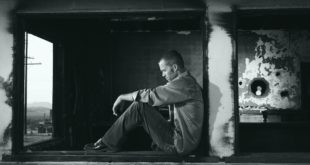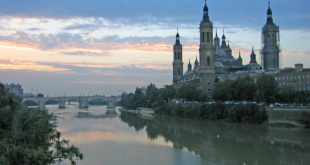Faith, Identity, and Impolitically Correct Bias – What Is the Deal?
People are so much more than purely physical beings with only physical needs. Everyone should recognize that as people, we have spiritual needs as well. However, in the current debate over religious symbols and identity, this seems to be soon forgotten.
It is not a mere trifle to convince a muslim to eat pork or to drop wearing the hijab or, for that matter, to deny a christian the ability to wear a cross around his neck. These are strong, personal symbols of identity which say something about who we are and what we believe in. The debate on religious freedom does not revolve solely around the right to practice whichever faith a person deems right, but also to have the freedom to express faith outwardly. Therefore we should not restrict the conversation on religious freedom to the private sphere alone. At the same time, we should be sensitive to the fact that some of the religious symbols we see are forced upon some people and that they come regarded not as symbols of freedom, but of daily oppression. A common example of this are when women wear the hijab, niqab, or burka. For some it is normal while for others it is oppression. However, in the fight for women’s rights it is important to note that the enemy is suppression and abuse, not religion in of itself.
Faith Challenges Neutrality
In the public debate over religious freedom, there is something which provokes me and arrests my interest. What grabs my attention is that there are many people who take on the role of the neutral party and represent the neutral voice in the debate on religion’s place in society. I need to admit at this point that I do not like this catchword ‘neutral’. It is not quite politically correct to be so discriminating and exclusive while claiming to be neutral.
It is not true that one can be one-hundred percent neutral and not be influenced by certain values or religious beliefs. Everyone believes in something whether it is the free market, freedom of speech, or atheism. These all involve faith; they are all a conviction of conscious. Even if our convictions are not necessarily religious, they are at least not neutral. The public sphere cannot get rid of religious symbols while at the same time being neutral, even if the state is a secular one. The fact that Norway is a secular state today means that the constitution was built on democratic laws adopted by the people, not on religious codes of law like the Law of Moses or Sharia Law. This does not, however, mean that the Norwegian constitution is not inspired by christian and humanitarian values, for it is heavily based on them, in fact. Many educational institutions hold the purpose of giving children the opportunity of learning about culture and faith and I believe that these institutions should continue to have the right to do so.
Respecting Each Other’s Faith
Today, there is more travel across international borders than ever before. We live in a new time with a diverse and multicultural society which is constantly changing. In this society, freedom and understanding need to go hand in hand. Respect for people as spiritual beings and for different expressions of faith are essential.
People with diverse lifestyles need to live together in such a society where everyone has his or her own values from various religions and cultures. Therefor, there needs to be place for different lifestyles and religions in the public sphere, even though this may mean that conflicts will arise. If we are secure enough in our own identity then we will be ready to dialog well when we meet others with different opinions. In the end, we need to value religions’ power to create community and recognize this in our common struggle as people from various faiths to secure our rights for religion to be practiced in the public sphere.
Written by Kjell Ingolf Ropstad. Translated by Emily Huyck.
 Sorthvit.com Take back what's beautiful!
Sorthvit.com Take back what's beautiful!




